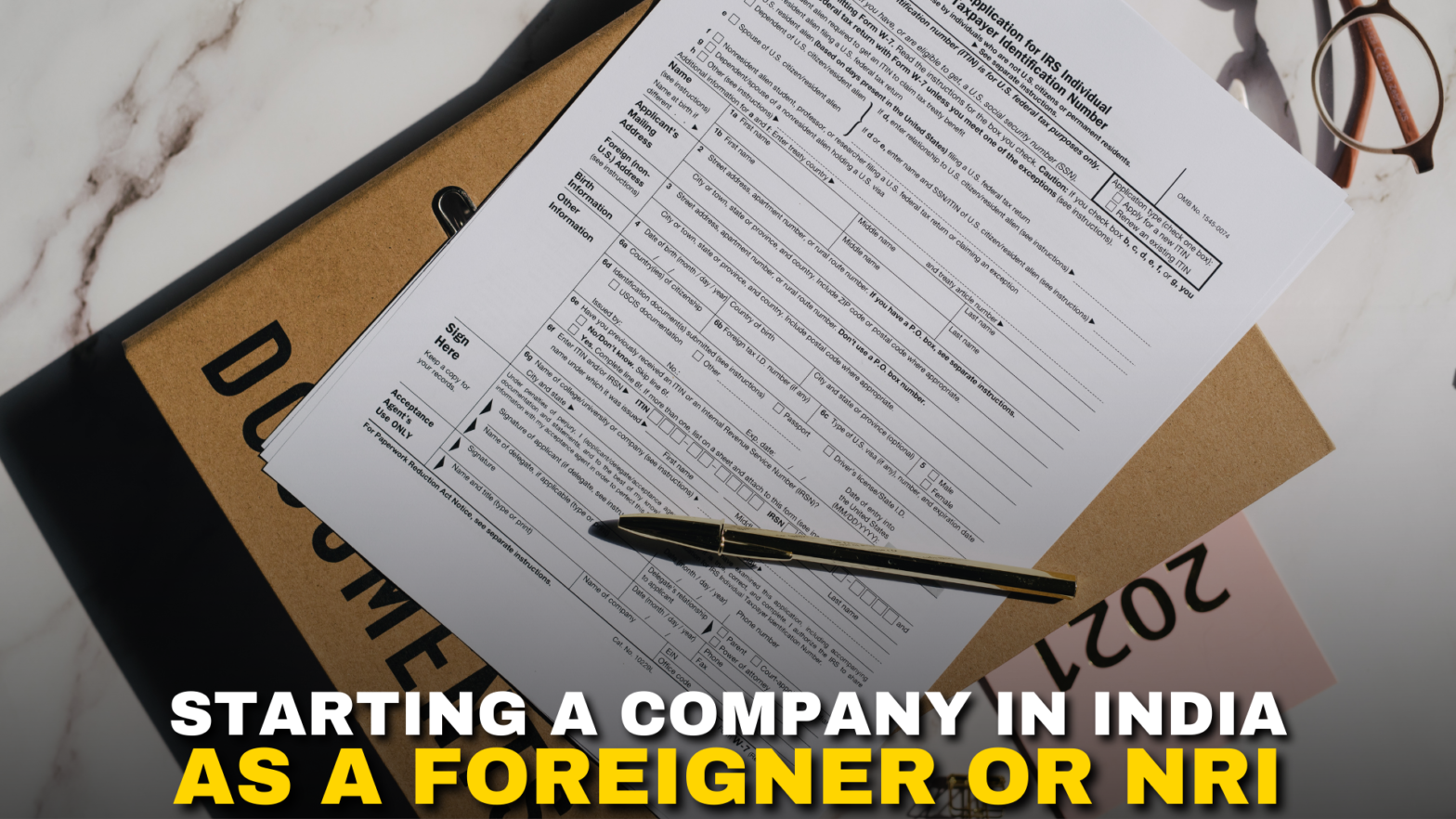

Are you a foreign national or a Non-Resident Indian (NRI) who wants to register a company in India? That’s great news!
India has a huge market, lots of skilled people, and the government is making it easier for foreigners to invest. But honestly, understanding the process can feel confusing—like trying to solve a puzzle blindfolded.
That’s why Trustlink is here to help you. This guide will walk you through everything step by step.
This guide covers:
✅ Legal rules
✅ Types of companies
✅ Registration steps
✅ Documents you need
✅ Tax and compliance
✅ Common mistakes to avoid
Huge number of customers
Skilled and affordable workforce
Growing sectors like fintech, e-commerce, and manufacturing
Friendly startup policies
Before you start, you should know the main authorities:
Companies Act, 2013
Main law for company formation and management.
FEMA (Foreign Exchange Management Act)
Governs flow of foreign money in and out of India.
RBI (Reserve Bank of India)
Sets rules for foreign investment and sending money abroad.
You can set up different types of companies:
Private Limited Company
Most popular choice
Limited liability (your personal assets are safe)
Separate legal identity
Limited Liability Partnership (LLP)
Fewer compliance rules
Not ideal if you want venture capital funding
Branch Office
An extension of a foreign parent company
Follows RBI guidelines
Liaison Office
Acts as a communication channel
Cannot do commercial business
Project Office
For carrying out a specific project in India
✅ 100% foreign ownership allowed in many sectors
✅ Easy to raise funds
✅ Limited liability
✅ Tax benefits
At least 2 directors (one must live in India)
No minimum capital needed
Can grow easily
NRIs and foreigners can own 100% shares in a Private Limited Company.
2 Directors (1 resident in India)
2 Shareholders
Registered Office Address in India
Step 1: Get Digital Signature Certificate (DSC)
Like an online signature for directors.
Step 2: Get Director Identification Number (DIN)
Unique ID for each director from the Ministry of Corporate Affairs.
Step 3: Name Approval (RUN Service)
Reserve your company name online.
Step 4: File SPICe+ Form
Main application form for incorporation, PAN, TAN, and GST.
Step 5: PAN, TAN & Bank Account
After incorporation, get your tax IDs and open a business bank account.
For Foreign Directors:
Passport (notarized and apostilled)
Address proof (utility bill or bank statement)
ID proof
For NRIs:
PAN Card
Passport & Visa
Overseas address proof
For Registered Office in India:
Rent agreement or ownership proof
No Objection Certificate (NOC) from owner
Utility bill
Corporate Tax:
Domestic company: 22% (without exemptions)
Foreign company: 40% (plus surcharge and cess)
Double Taxation Avoidance Agreement (DTAA):
India has agreements with 80+ countries to avoid double taxation.
Automatic Route: No special approval needed.
Government Route: Need government approval.
Examples:
E-commerce: 100% FDI allowed under automatic route
Defence: 74% automatic, beyond that needs approval
ROC Filings
Annual returns and other forms to Registrar of Companies.
Annual Returns
Forms MGT-7 and AOC-4 are mandatory.
Statutory Audit
Appoint an auditor within 30 days of incorporation.
Banks follow strict RBI KYC norms for foreigners.
Usually takes 7–15 working days.
Language barriers and complex paperwork
Delays due to missing or wrong documents
Trustlink recommends:
Hiring a Chartered Accountant or lawyer
Using online platforms like IndiaFilings, Vakilsearch, or LegalWiz for easy registration
Do:
✅ Hire professionals
✅ Prepare all documents in advance
Don’t:
❌ Assume all sectors allow 100% foreign ownership
❌ Ignore compliance after registration
Make sure your documents are clear and complete.
Pick a unique company name to avoid rejections.
Setting up a company in India as a foreigner or NRI is completely possible if you follow the right steps. With the correct structure, documents, and compliance, you can tap into India’s booming market.
Trustlink is here to make your journey easy, clear, and successful.
Q: What is the minimum capital needed?
A: No minimum capital required for a Private Limited Company.
Q: Can a foreigner be the only director?
A: No. You must have at least one Indian resident director.
Q: Do I need to be physically present?
A: Not always. Most of the process can be done online.
Q: How long does it take to register?
A: Usually 10–20 working days if documents are correct.
Q: Can I send profits abroad?
A: Yes, but you must follow RBI and FEMA rules and pay taxes.
by Corporate Advisory, TRUSTLINK